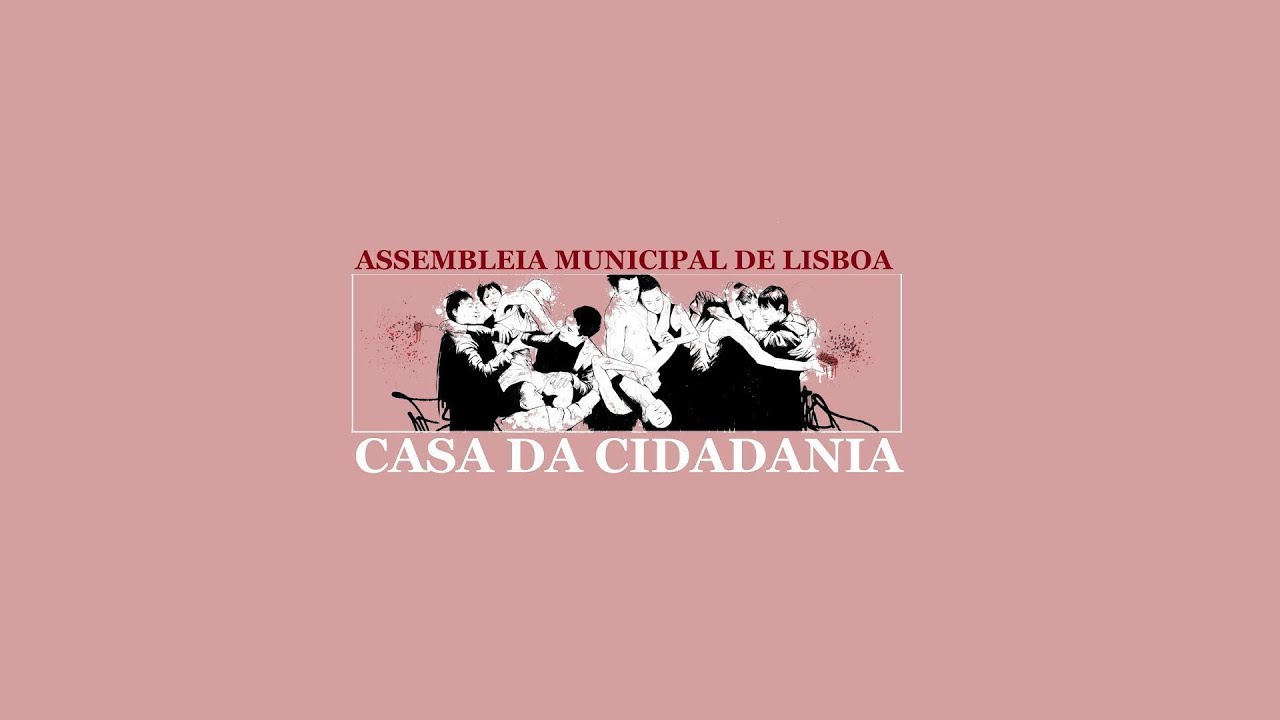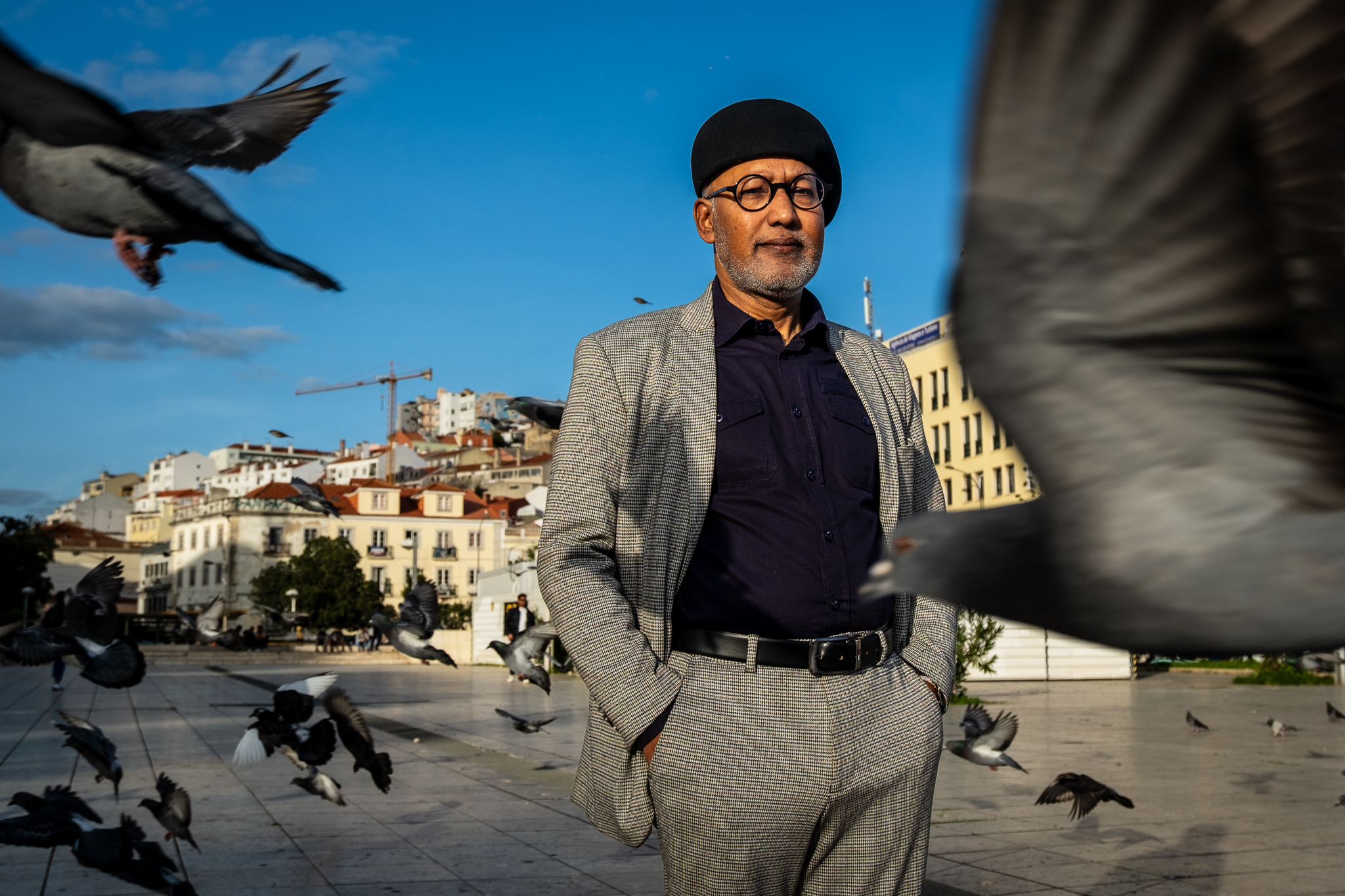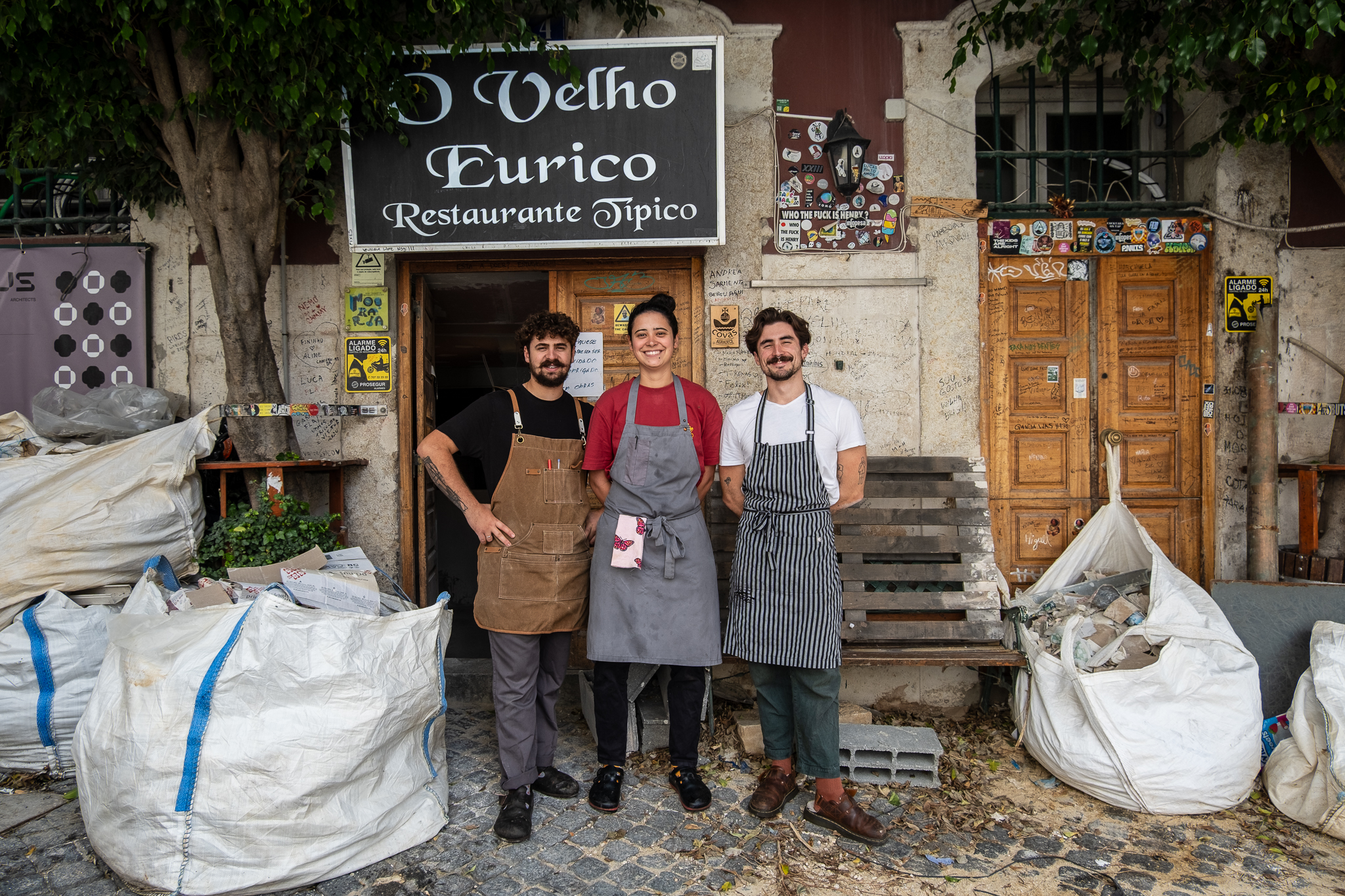In the first State of the City debate, the Mayor praised "a year of accomplishment," but the left spared him no criticism.

In the same way that the "State of the Nation" is debated in the Portuguese Parliament, the "State of the City" is discussed in the Lisbon Municipal Assembly. The first such debate in Carlos Moedas' term of office took place on October 11th, after a year in office; the Mayor praised "a year of accomplishment"but the left did not spare him any criticism. The PS, through an intervention by deputy Miguel Coelho, was particularly harsh in its criticism: "No strategy for the city is in sight from him. Just smiles and whining about the wicked opposition who won't let him do things."
The Coins Side
On the eve of his first year in office (he took office on October 18, 2021), Moedas went to the Municipal Assembly to "accountable"making sure that your willingness to do so is "total"either in the so-called Casa da Cidadania of Lisbon, or "in the street with the Lisboans. And he promised "truth, transparency and proximity" in the first State of the City debate, "an essential debate for us to convey to our citizens how our city has evolved, what difficulties we have encountered and overcome, and what commitments we propose to make over the next year". The mayor's speech was very much based on the idea of a year of accomplishment and decision, a narrative that Moedas has also taken to the different interviews he has given to the media in the last few days.
My commitment to the people of Lisbon remains valid and intact. I will always decide based on the people. This year's achievements and our project for the next three years are an example of this. We will keep this course. A course of decisions and achievements.
- Carlos Moedas (@Moedas) October 11, 2022
A course for the future. pic.twitter.com/OAQzAOk1az
"In just one year, I am proud to say that this was a year of accomplishment and decision"he said, listing, afterwards, his measures and initiatives that came from the previous mandate: the free public transportation to "the young and the old"the selection of Lisbon to be one of the 100 carbon neutral cities by 2030, the transition of public lighting to LED technology, the construction of one thousand new affordable and municipal housing units, the renovation program of neighborhoods and municipal housing, the initiatives in the area of transparency and corruption ("we have, for the first time, a Code of Ethics in the City Council"), the acceleration of the approval of urban development projects, the increase of the income tax return and the removal of the Marquês de Pombal posters.
Moedas gave special emphasis to the removal of the Marques do Marquês billboards, mentioning that it was "a very important decision" and "a decision in which the people of Lisbon were all with us and I know they are all with me". The Mayor assures that "as much as [the parties] want to take this into the political arena, no one agrees" with the presence of political billboards in that square; and said it was "I need to have the courage to go there and take it". People, he said, "they expect the mayor to do and have the courage to do it even when it is difficult".
"We naturally admit that we haven't done everything yet. We still have three years to work."added the Mayor of Lisbon, re-launching his commitment to "redoubled energy" for the second year of his mandate and highlighting some social measures, such as a baby check for needy families or a cultural pass for the youngest and oldest to have free access to the city's culture, and also his "anti-inflation package". Moedas repeatedly highlighted the role of opposition councilors in city decisions and praised measures created jointly - despite the fact that over the past few months and several times in the press he has mentioned blockades on the opposition's side.
"We want Lisbon to be able to compete with the big capitals, to have the audience to be as big as the others"but pointed out that "the future of Lisbon requires the Government's ability to take decisions". You mentioned the future airport ("we want an airport that is in the proximity of Lisbon and we want that decision to be made in 2023") and asks the central state to transfer the "due funds" so that the Municipality of Lisbon can "take more responsibility". "We are not afraid to take on more responsibilities in education, health or social. We want those responsibilities but with the resources that are due to us."Moedas understands that wants the central government "pay the cost of true decentralization" and that it is not limited to "decentralizing the problems".

The Opposition Side
Miguel Coelho was, for the PS, the first to speak after Carlos Moedas, promising to make "a fair assessment of the state of the City after this first year in office". Before, he asked Moedas to stop "whining and passing the blame to others", "justifying some of its failures, excitements and setbacks with alleged blockages by opposition parties". "There is no basis for this kind of victimization and as an argument you are already a little worn out, so much so that you have not used it here today"said Miguel Coelho, pointing out that "until the first days of September, of the 700 proposals it took to the municipal executive, the PS only voted against four".
The socialist municipal deputy, President of the Santa Maria Maior Parish Council, recalled a "arithmetic question"addressing Carlos Moedas: "You should always keep in mind that there were more Lisboners who did not want him for mayor than those who actually wanted him"he said, referring to the election result of 34.26% for the coalition New TimesThe opposition's 62,65% (excluding whites and nulls).
Miguel Coelho pointed out this criticism after successive statements by Moedas about having won the last elections, devaluing the opposition councilors, who were also elected, representing a part of the electorate. "For us, PS, your political legitimacy to govern the city of Lisbon is not and was not in question. It's a settled issue"; but "it is important that the President knows how to accurately interpret the election results" and, not having a majority, "must have a permanent willingness to engage in dialogue and to grant the other political forces the right and duty to help him define some of the structuring paths to follow."
"Lisbon is bad, Lisbon is worse and heading for rapid degradation. And the common citizen is already feeling it", said the leader of the PS. "No strategy for the city is in sight. Just smiles and whines about the wicked opposition who won't let him get things done." Categorizing Currencies as a "neoliberal"with "a vision of society that elects as its first priority the right to economic freedom of the citizen and free enterprise without any regulation by the state"the socialist deputy said that he is, in this field "fulfill its electoral program". You accused him, for example, of abdicating "eight million euros" with the return of the IRS "to the highest earners"a revenue that would give the municipality "to guarantee annually about 750 thousand meals, that is, 2050 per day". Miguel Coelho also mentioned that Moedas has "an enormous capacity for the exercise of propaganda" and a "great skill" to advertise others' work as his own, giving as an example the General Drainage Plan or the recent delivery of new keys to affordable housing. "It's biased and inelegant propaganda."
Returning to the theme of Almirante Reis, which dominated the first year of his mandate, the President of the Junta de Santa Maria Maior categorized as "a disaster"with a "spiral of conflicting information and compromises, studies that were and were not, simulations of participatory processes, and finally with a decision made based on who had the ability to shout the loudest". For the PS there is no doubt: "The absence of strategies and the disorientation in this area [of mobility] are quite evident. On Mondays, Wednesdays and Fridays, it rhetorically values environmental preservation. And on Tuesdays, Thursdays and weekends, it subordinates it to the economic interest of the city, ignoring that these are dependent on the others and vice versa." Miguel Coelho also pointed out that Coins "says what the audience wants to hear. If you're with citizens who are organized to defend the automobile, you'll say that you'd never think of conditioning them. But if he is with representatives of bicycles and scooters, he will tell them that he will favor them over cars..
"Lisbon is worse off with you when it comes to mobility"added the mayor of Santa Maria Maior, the parish where a ZER ABC with restrictions on automobile traffic has been promised. "How are you going to get fewer cars in the city or control emissions of gases and polluting agents without, with common sense, conditioning the circulation of fossil fuel vehicles? How will you be able to expand the public transport network and its operational sustainability without considering a general plan for circulation in the city of Lisbon, considering the network of bike lanes, ZERs, the right to use private transport, accessibility to neighborhoods, parking, and the right to safety for those on foot?"
Miguel Coelho also talked about housing, urban hygiene and the decentralization of powers to the Parish Councils, pointing out that "Lisbon needs more results and less talk"and also of a "integrated thinking". "Lisbon is at a standstill, with no direction and no strategy"he said, accusing Moedas of thinking of jumping from the capital to the leadership of the PSD as early as 2025. Referring to Jorge Sampaio or António Costa, he pointed out that "they have all been more than one term" in Lisbon City Hall, where "took root for what followed"Moedas, regretting that he has not yet been able to affirm his commitment to run as a candidate in the local elections in three years time. "This ambiguity does not serve Lisbon"commented, in which Moedas "does not want to commit himself to difficult and controversial decisions that would jeopardize his ambitions to hold other state positions".
The PS municipal deputy led the opposition to Moedas in the debate on the "state of the city", a meeting dominated by rhetoric and that on the left was marked by the same tone: from mobility to housing, from urban hygiene to the billboards of Marquês de Pombal. Miguel Graça, deputy for the Citizens for Lisbon, said that "the state of our city is a great void, full of dialogue and participation" and asked why the billboards politicians were not removed also from areas such as Campo Pequeno, Largo do Rato or Alameda, where they also obstruct the "framing of national monuments or public buildings". Cláudia Madeira, from the PEV, said that "the reality [of the warrant] proved to be quite different from what was proclaimed" in an election campaign - from "new times, new ways of thinking about the city and connecting city to city to citizens". "The new times have not yet solved any serious problems in the city" e "a considerable part of the House's proposals are neither innovative nor represent a break with the policies of recent years"pointed out the green congresswoman. José Sobreda Antunes, also from the PEV, completed the reasoning, pointing out "a strange unpreparedness and inability to deal with what are the real problems of the city and its inhabitants".
António Valente, from PAN, pointed out that "this city is not for the people"criticized the housing policy, asked for more green spaces, stressed that "not an inch of bike lane has been built this year" and asked that Lisbon be "elevated the anti-taurine city"with critical voices in the audience. Isabel Mendes Lopes, municipal deputy for Livre, pointed to Paris or Pontevedra as "cities that are taking the future in their hands and are transforming themselves to be 21st century cities"with streets "open to people and designed for them"It's a good idea to have a school that is open to the community, or islands of coolness against the heat waves. "They may say that one year is too little time and that it is too little time to show work, especially for a team that has just arrived and was not prepared to govern"he said, "But a year, in fact, is a long time. It is more than enough time to show the vision, the ambition, to reveal the history of the city you want to build for the future. And after one year we still don't know this vision."
See the complete intervention by @Isabel_ml_ in the State of the City debate. The municipal deputy from @LIVREpt takes stock of the "New Times" management in the areas of housing, equality, politics, and mobility.#Lisbon https://t.co/C0pBLfSN6G
- LIVRE Lisbon (@livre_lisboa) October 17, 2022
Natacha Amaro, from the PCP, focused her intervention on topics such as urban cleaning and hygiene, stating that "it would be impossible to talk about the state of the city" without addressing this issue and that "the situation all over the city is striking: dirty streets, uncollected garbage, overflowing bins, waste bins and recycling bins". He acknowledged that "it was never an easy area"but criticized the transfer of competencies in this matter to the Parish Councils, pointing the finger at both the PSD and the PS - instead of a management "integrated and coordinated" e "with capacity to scale" by the City Council. He talked about school property and also about municipal housing, he mentioned that Carris' offer is "stagnant and far from what would be needed"and said that "degradation of air quality" will only be aggravated by the "maintenance of the airport at Portela" (PCP defends a new Airport outside the city, with the closing of Portela). At the end, the communist deputy asked "another governance that knows the city and the interests of those who live and work here".
Isabel Pires, for BE, criticized the coalition New Times by the narrative that "in just one year they did more than any other city government, giving the idea of an absolutely historic achievement, unrepeatable in time and space"and pointed his finger at a"poor reaction to criticism, demagoguery and populism about any proposal other than their own"categorizing it as "an arrogant coalition, because it thinks that everyone else is bad because they do politics as if they don't do it themselves, as if they ended up where they are by divine work". "It's a dangerous populism maneuver and unfortunately already very much tried a bit all over Europe"She also said that her speech focused on areas such as mobility and housing.
Rodrigo Mello Gonçalves, MP for the Liberal Initiative (IL), addressed mobility, a "unavoidable area" for being "a permanent concern of the people of Lisbon. He said that the mobility policy of the municipality "stalled, slow to start, and in between still had a false start" - "He stopped, and in our opinion rightly so, a bike lane policy that was carried out in three shots across the city where the cyclists themselves complained of safety problems. It stopped a Reduced Emission Zone project, which was nothing more than a Conditional Access Zone, badly thought out and little discussed, in downtown Chiado. He stopped a policy of guerrilla warfare against drivers and that fomented conflict in the city. A policy of impositions and prohibitions was stopped. It stopped a logic of suppression of parking spaces that made life difficult for many lisboans in the last years. All that has stopped and it is positive." For the Liberal MP, "slow to take off" dossiers such as the audit process for the cycling network, a regulation on electric mobility for cars, the regulation of shared soft mobilitythe beginning of a revision of the parking regulation for "give the promised discount to the lisboans"He also wants new car parks to increase the supply of parking spaces, which he says are insufficient. About the "false start"He mentioned free public transportation for students and people over 65, mentioning that IL was "the only party in Lisbon that didn't vote in favor betting on abstention"I think it should have a metropolitan logic.
The debate on the "State of the City" takes place annually in the Lisbon Municipal Assembly, with the presence of the Lisbon City Council and the municipal deputies.










